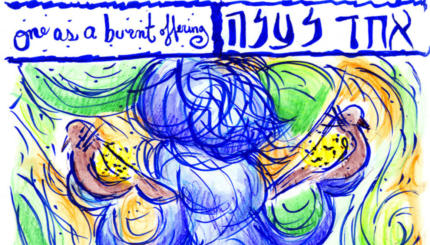“So it’s finished?” I heard one commentator on local NPR ask sarcastically in a discussion about the NBA decision to issue a life-time ban on Donald Sterling. Of course, we know that the conversation about racism in our society, how it manifests and how it effects the lives of millions of citizens each and every day, is clearly not over. But while most media outlets are moving on to the next story, it is also quite clear that, if Sterling’s private conversation with his girlfriend was being held up as an example of the kind of racism that our society won’t tolerate, the conversation never really even began.
Because it is way too easy to hold up people like Donald Sterling as examples of racists so that the rest of us can congratulate ourselves on not being racists “like them.” Most people don’t want to look in the mirror when these stories highlight only a caricature of racism to delve a little deeper into their own, real life experiences.
It just so happened that, while this story was breaking this week, I attended an extraordinary multi-media one-woman performance called “Crossing the Boulevard” by Judith Sloan. Sloan engaged youth and adults over several years in what is probably the most ethnically diverse borough in the USA: Queens. Through an exhibit which became a book, which became a stage show, Sloan brings to light the hidden stories and experiences of people of so many different faith and ethnic backgrounds who she met through her project. By telling pieces of their diverse and fascinating stories she brings forth the most important facet within each and every one of them—their humanity.
Her presentation was brought to my town by the Friends of “Facing History and Facing Ourselves” program that is taught in our local High School. The performance highlights how each and every one of us knows so little about our neighbors because of the silence that exists, separating people of different backgrounds. Part of this is due to our uncertainties and anxieties about ‘the other’ and part of it is the way in which we seek to understand ourselves partly through defining with whom we belong. Hence we seek others “like us” as part of that search for meaning. This is not inherently wrong. It is human nature. But it means that it takes an active choice of will to simultaneously exert effort to build genuine relationships with others. Inaction too quickly leads to a separatism within which power exerts itself and racism is easily inserted into the equation.
I yearn for intelligent conversations about difference and diversity. I hold a professional position that makes a great deal of my work about helping Jews hold up, engage with and love things that are specifically Jewish, and require Jewish community coming together to share some of the best of those things. And I also recognize the need to do this in ways that are outward looking, that seeks opportunities to share our specificity with others who will have equal opportunity to share theirs with us. His kind of sharing doesn’t usually “just happen.” It takes an act of will. Just last month we hosted a service to highlight the learning that took place among a group of 8th-12th graders learning and leading in a program that provides Jews, Christians, Muslims, and Hindus with a meaningful encounter over six weeks of being together. We need programs like this in our schools, in our communities, and for adults as well as children.
If the story of Donald Sterling is to teach us anything, let it not be what racism looks like—that’s too easy and simplistic. Let it remind each of us to take that active step, personally and individually, to have a conversation with someone we see as “other.” Let it remind us not to hide our own sense of “otherness” in a desperate attempt to fit in to something that we perceive might not accept the fullness of who we are, but gently, and with tolerance and patience, we can help teach others when we share that “otherness” with them. We may not complete the work, but neither can we desist from it.
The Jewish world is full of debates. Get the latest in MyJewishLearning’s weekly blogs newsletter.



